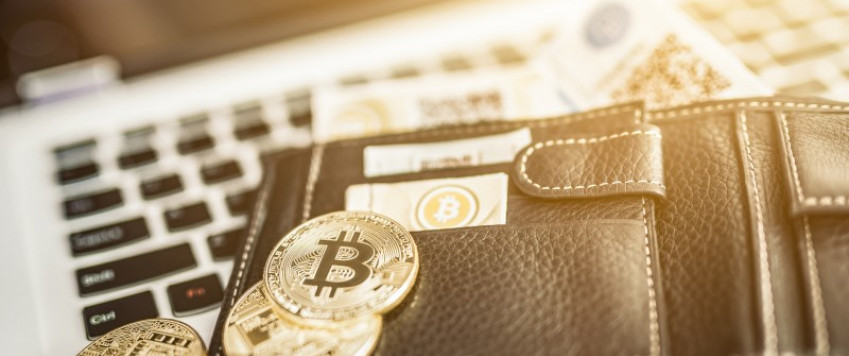Imagine yourself spending your bitcoin partying the Friday night in Paris, France and then the next day being lost for choice what to do in New York City, because there are close to 200 venues with an option to pay in cryptocurrencies.

Or, imagine that you are from a politically unstable jurisdiction, but with a relatively stable internet, which allows you to manage a personal online-wallet, or login to a crypto-exchange and invest with cryptocurrencies into a project from a favourable jurisdiction with a clear rule of law and transparent governance. Today, according to coinmap.org there are close to 20,000 venues that accept cryptocurrencies as a payment for goods and services, or as in the case of Fintelum.com, for finding equity investments. This article is about what you can do with your crypto savings today and why it is the best non-political, universally acceptable medium of exchange that has ever happened to humanity.
Money is a social construct like language. No other animal on our planet uses anything remotely resembling a medium of exchange. Individually, humans are not self sufficient, and survival with barter is limited to close proximity and immediate necessities. Therefore, money serves as the medium of exchange for goods and services that humans desire or need.
Humanity has seen many forms of money and for many millennia had settled for some shiny metal – gold and silver to be a widely accepted form of money across the planet. These malleable and relatively easily divisible, transportable and geologically scarce metals were universally accepted to be valuable and thus served the purpose of medium of exchange across civilisations.
Money as we know it today is no longer shiny or precious, but paper or digital zeros and ones on a computer network. Most importantly, ever since the world has transitioned from precious metal based monetary system to fiat, or paper money, we have seen an increasing segregation of economies, based on national principles, with one authority responsible for maintaining the units in circulation – the national or supranational central banks.
A nationalisation of a currency makes economic activity exclusive to individuals within the national boarders. For example, you cannot freely use the the Swiss Franc to buy goods in another country, unless it has been adopted by people from other nations, as is the case with pegged currencies, e.g.: in Cambodia for US Dollar. Clearly, the British Pound is of no use at the local coffee shop in Paris, where Euro is the legal tender or accepted fiat currency. Or, think of the North Korea, in an extreme case example. And if a citizen is going abroad, their headache is how to convert their national units into other nation’s currency, a foreign exchange issue becomes salient as the travelling date approaches.
Granted, in today’s Covid-19 beset world, we travel less and do not do foreign exchange by physically converting money. But the online investments and trading has not slowed down. On the contrary, investment activity has been on the rise since lock-down were imposed across nations. The rate of trading app downloads exploding and retail participation generally increasing as everyone stays home to work, saving on travel and investing in areas of interest – e-gaming gambling, foreign exchange scalping, indices volatility trading, peer-to-peer lending or equity investment for the rainy-day.
With trading apps and venues ubiquitous, do we have equally accessible investment opportunities across the globe? – Hardly. If you live in the United States or Europe, you are privileged and have access to financial services with a relatively stable, albeit inflationary, monetary systems. You have decent investment opportunities through your bank or brokerage, or if you are savvy, you invest into peer-to-peer lending or equity investment projects through various crowdfunding platforms. What about if you dwell in a sunny but not so stable or law-abiding jurisdiction, where you don’t trust your national currency or that your business is no longer welcome to the “generals” or dictators in charge?
Cryptocurrencies, such as bitcoin and ether are public and available to everyone in any jurisdiction. Similarly to foreign exchange, you can exchange your national currency for cryptocurrency or accept it as a payment for your products or services. The ownership and use of alternative currency such as bitcoin or ether allows you to have an economic impact not only in your country, but in almost any civilised country on the globe.
Bitcoin and ether are like foreign currency, because they are not managed by your nation state, which you might not trust anyway. And yet they are not foreign as they are not managed by any state. – They are local. They are accessible. They are open, in a system of global consensus. Cryptocurrencies offer the same access to financial independence to people in Cambodia and Columbia as in Europe, USA and China. Using cryptocurrencies is like speaking one language and casting a vote in a system where trust is not needed.
At Fintelum, we see a place for crowd investment globally for projects of smaller capitalisation than a typical IPO, by means of tokenisation. These are often more solid and of higher expected returns and thus more attractive investment opportunities for the retail investor globally. We foresee the world to become even more open and democratic. We all can cast a vote for projects we like, using cryptocurrency as a means of payment across national boarders. We can participate in growth and innovation which is not limited to a local area. The world becomes a better place, when it is openly competing with ideas and opportunities and offers a way to participate for everyone on the same terms.
Originally appeared on Makroekonomika portal here: https://www.macroeconomics.lv/page/cryptocurrencies-are-best-foreign-currencies-without-being-foreign
Latvian version of the article available here: https://www.makroekonomika.lv/lapa/kriptovalutas-ir-ka-dolars-tikai-labakas